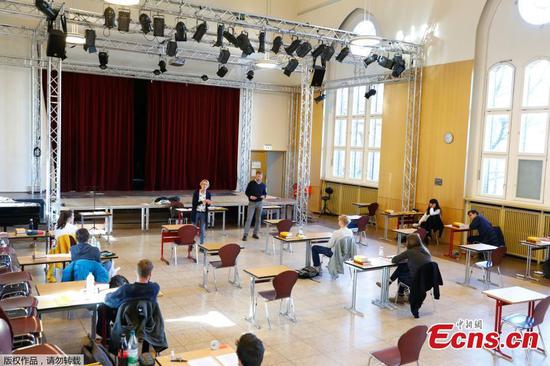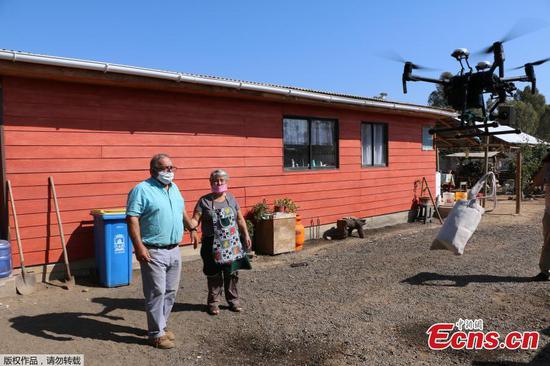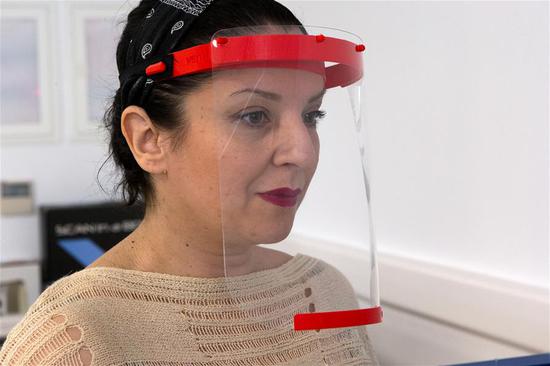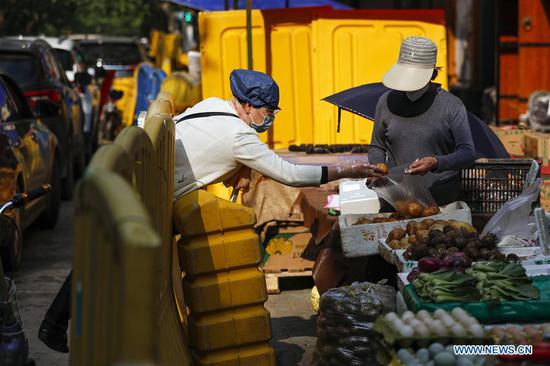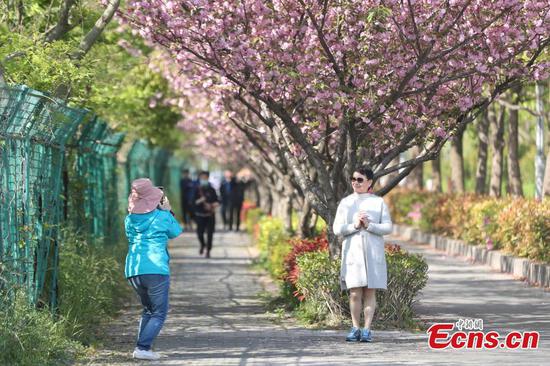Last week, Denmark reopened schools for pupils younger than 12, and on Monday, it allowed hairdressers, tattoo parlors and dentists to resume business for the first time since a lockdown was imposed on March 12.
Courts are expected to reopen on Monday, while restaurants, cafes and schools for students age 12 and older will remain closed.
Italy, the hardest hit of the 27 EU member states, has also lifted some restrictions, allowing bookstores and children's clothing shops to reopen on condition that customers wear face masks and gloves. Other lockdown measures in the country will remain in place until May 3 at the earliest.
Spain, with the highest number of confirmed cases in the EU, has allowed tentative reopening by construction and manufacturing businesses since April 13. The government has advised people returning to work to wear face masks whenever social distancing is not possible.
On Saturday, Spanish Prime Minister Pedro Sanchez said that while the country had seen a decline in the number of new cases and deaths, he would ask parliament to extend the lockdown for two weeks. It is due to expire on Sunday.
Portuguese Prime Minister Antonio Costa said on Saturday he hoped his government would be able to begin lifting the lockdown next month.
"It will have to be gradual, progressive and controlled, so that we don't lose in May what we've gained in the past two months," he said, adding that small neighborhood stores would likely open first.
He said the government could announce procedures for easing restrictions on April 30. On Friday, the lockdown in Portugal was extended until May 2.
By introducing social distancing at an early stage, Portugal has been successful in battling COVID-19. The mortality rate in the country from the disease is just over 3 percent, compared with 10 percent in neighboring Spain, 13 percent in Italy, 14 percent in Belgium and 17 percent in France, according to a World Health Organization report on Saturday.
Borge Brende, president of the World Economic Forum and a former Norwegian foreign minister, said: "In these countries, governments are now exploring how to relax measures. It is, though, incredibly important to avoid a second wave (of infections)."









